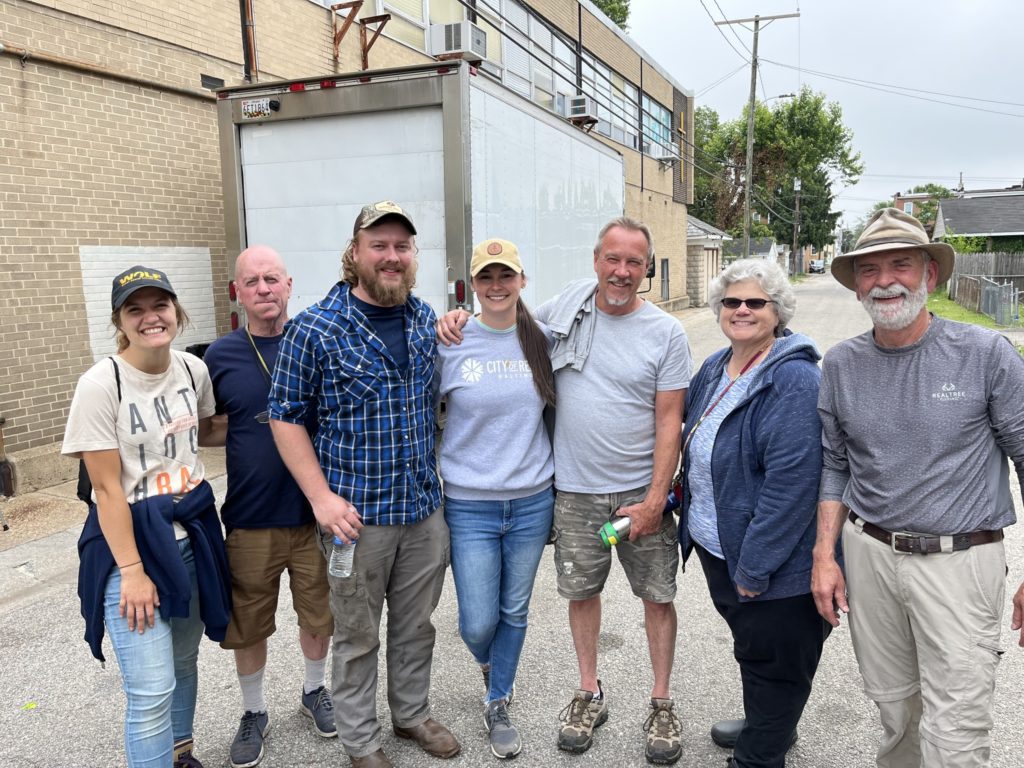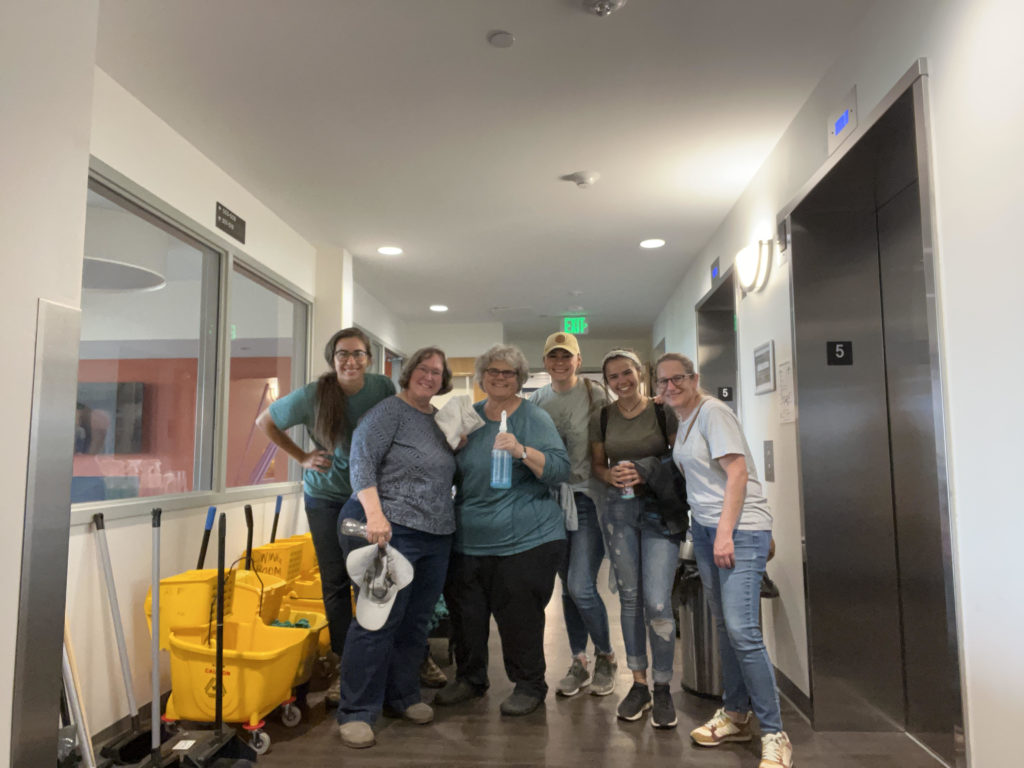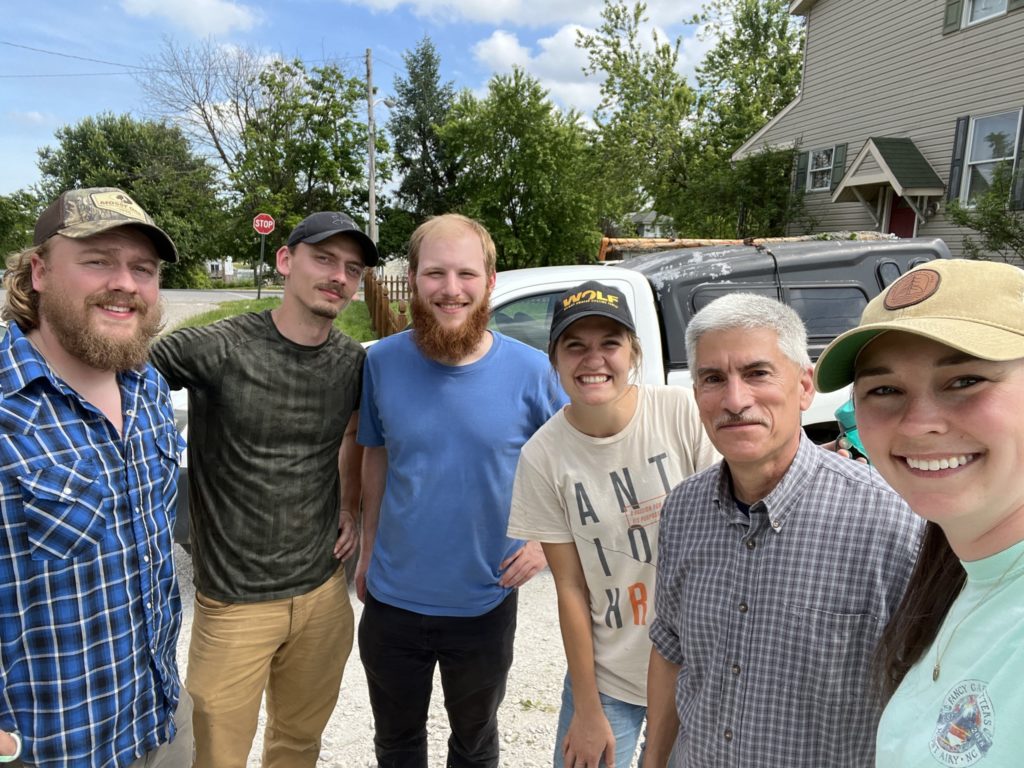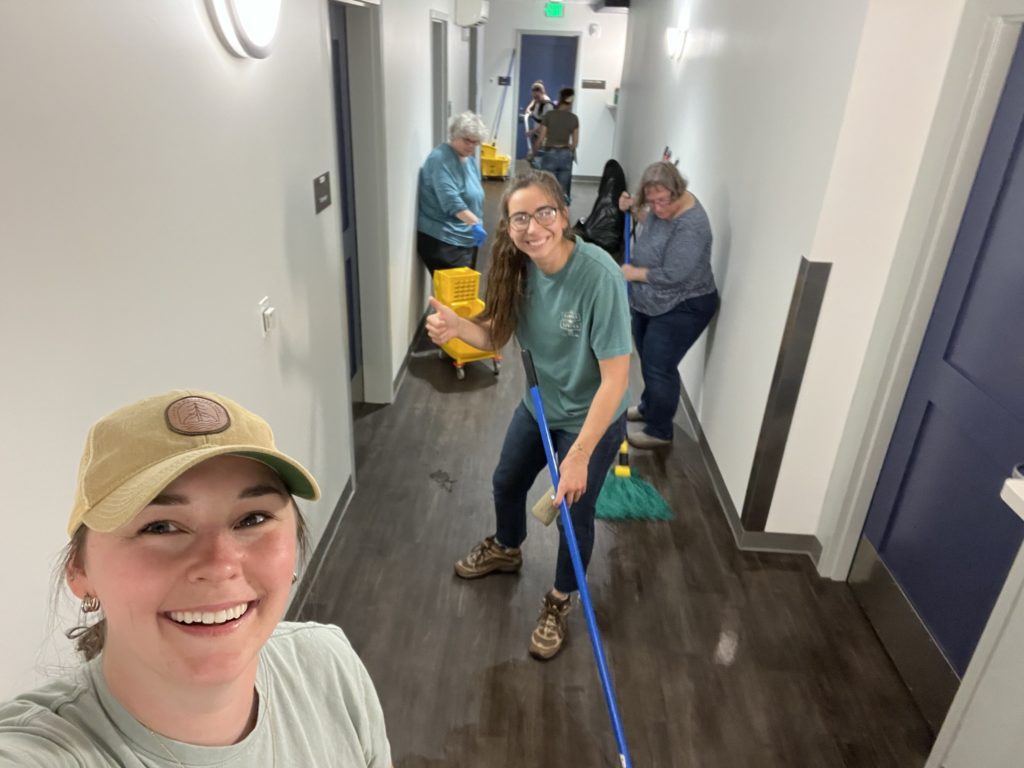Santino Burrola recorded a video and posted it to TikTok. He was fired from his job at a grocery store for the offense. What did he do wrong? Inappropriately filming someone in the restroom? Dancing in the aisles while on the clock? No. He recorded thieves stealing from the store. He peeled aluminum foil off the license plate of the get-away vehicle so that it would become visible. Hoping that the culprits would be caught, he posted the video, and at least one of the thieves was caught. For his actions in trying to stop people from stealing, he was fired.
The store cited its policy that employees should not interfere with people shoplifting to “minimize the risk to our associates.”[i]
If you read the title to this piece, you may be wondering how this story relates to Christian Nationalism. It doesn’t seem to tie in at all. Please bear with me, and I will try to show you how. There is a Christian Nationalism which should be rejected and condemned vociferously, but there are also some thoughts and ideas which are labeled “Christian Nationalism” in an attempt to smear those who offer them as well as to dismiss those ideas without having to engage them and understand why they are held; and those thoughts and ideas directly relate to the Santio Burrola situation.
First, we must define Christian Nationalism. There is no firm definition, at least that I have found. In our postmodern society, this is par for the course. The muddier we can make definitions, the more we can apply or deny them to a given situation, group, or movement.
But I don’t play those games. Muddying the waters only sows confusion and chaos. Therefore, you do not need to guess my operating definition of Christian Nationalism. It is this: The belief that God has given the U.S. a special blessing and destiny, and that to be American means to be explicitly Christian. Therefore the United States should impose the Christian faith upon its population in public life including in its understanding and application of the law. Many would call my definition too limited, and they would like to add several caveats to it including the following:
- The U.S. was established to be an explicitly Christian nation.[ii]
- That Christianity should have a privileged position in society.[iii]
- That it provides cover for white supremacy and racial subjugation.[iv][v]
I reject these caveats and additions, and I explain why below. However, I also believe it is important for Christians to unequivocally reject and condemn the definition which I have set forth. Why?
For two substantial reasons: First, Christianity is invitational, not impositional. Plain and simple. Nowhere does Jesus ever suggest that anyone be forced to become a Christian or follow Him. In fact, when people reject Jesus, He lets them go. He doesn’t zap them. He doesn’t punish them. He allows them to walk away to follow their own whims. He focuses His attention on those who do accept the invitation to follow Him.
Faith in Christ does not come by forcing people to follow Jesus. Faith comes by hearing the Word of God and having one’s heart transformed by the power of the Good News of Jesus Christ. This is our only and sole weapon of transformation and bringing of the Kingdom of God to earth. Imposing the Christian faith by fiat does not change a heart, and the times when it has been tried have led to disaster.
Secondly, the Kingdom of God is in the world, but it is not of the world. Martin Luther writes about this eloquently in his short piece Temporal Authority: To what Extent it Should be Obeyed, “What would be the result of an attempt to rule the world by the Gospel and the abolition of earthly law and force? It would be loosing savage beasts from their chains. The wicked, under cover of the Christian name would make unjust use of their Gospel freedom.”[vi]
The Kingdom of God operates by grace, and those who enter into it have no need of temporal law. The Law of God is written upon their hearts, and so they actually go above and beyond what temporal authority calls for. However, as Luther states, there are very few true Christians, so temporal law is necessary to curb sin.
Those who seek to impose the Kingdom of God by following the belief of Christian Nationalism do not fundamentally understand Christianity, and, perhaps this is why, as the authors of Taking America Back for God found, the religiously devout do not adhere to those beliefs.[vii]
It would appear that a rejection of Christian Nationalism on these terms would be satisfactory, and we could simply bury the subject altogether; however, we cannot. The topic actually becomes a bit muddier when one considers there are people within society, and within the church, who use Christian Nationalism as a pejorative towards those who believe that a) the United States was founded upon Christian principles and b) that Christianity should have a privileged place in society.
Let me state unequivocally before I continue, I do not believe that Christianity should have a legally privileged place in society. That is both unconstitutional in the U.S. and would actually fall under Christian Nationalism; however, when I speak of a privileged position in society, I speak from understanding two things: 1) That, as a Christian and particularly a Lutheran, I believe that all temporal authority comes from God, and 2) without grounding the fundamental rights of humanity as well as both values and morals, in a transcendent[viii] reality/worldview—specifically a reality/worldview that also allows respectful disagreement alongside those rights, values and morals—then a society will descend into chaos and eventually fall. Explanation is in order.
In the United States, it is understood that every individual human being is endowed with certain rights, and the founders of our nation stated clearly in the Declaration of Independence, those rights are self-evidently endowed by the Creator. One must ask oneself two questions: 1) Where did this idea of fundamental human rights come from? and 2) Why say that they are endowed by the Creator?
The answer to the first of these questions is: fundamental human rights including that each human had inherent value and worth came from the Judeo-Christian tradition. This is not a made up claim. You can read the histories and practices of ancient civilizations and find that only within the Judeo-Christian tradition does one find that each and every person has worth and value; each and every person is created in the image of God; each and every person is allotted certain protections no matter if they are an insider or an outsider. Here is the pertinent question: can a society hold onto fundamental beliefs when throwing out the very belief system that brought those beliefs into the world?
The answer to the second of these questions is: they are endowed by the Creator because if they were endowed by society or the government, then they can be taken away at the whim of society or the government. Rights that are endowed by the transcendent can only be removed by the transcendent. Rights that are endowed by the immanent[ix] can easily be removed by the immanent. The reason the Civil Rights’ Movement in the U.S. was successful is that an appeal was made to transcendent rights which superseded laws that society had implemented. Without such transcendence, one could have simply said, “The majority has spoken. Your rights are granted by the state, nothing more.” There would have been no counter argument. Another pertinent question: Can a society which removes the underpinning of human rights from a transcendent Creator maintain human rights for everyone?
The answers to these two questions begin pointing us towards the reason Christianity should have a privileged place in society. However, there is one more addition that must be made. Christianity not only ensures fundamental human rights and grounds those rights in a transcendent reality, it also provides a moral framework which allows for disagreement and respect towards those who hold different positions. Christians understand that we treat fellow Christians as family–this language permeates the New Testament, but what about those who are not in our Christian family? They are our neighbors, and we are commanded to love our neighbors as ourselves–love being agape, the Greek word for a self-sacrificial love which calls for sacrificing ourselves for the sake of our neighbor. There is a further call to love one’s enemies–again using the same Greek word. Hatred and demonization of enemies; of the other; of someone outside one’s preferred group, is forbidden within Christian thought. Is there another philosophy or religion which goes so far?
Certainly not the godless, postmodern society which is rapidly gaining ground within our culture. Postmodern thought has removed the idea of transcendence and has made everything immanent, and, unfortunately, even some within the church buy into this particular philosophical framework. It is much to society’s detriment.
Let us return to the opening story of this article: Santino Burrola and his subsequent firing for wanting to stop thieves. What philosophy/worldview undergirds the idea that thieves should be allowed to take goods unchecked? What philosophy/ worldview undergirds the idea that those who seek to stop stealing should be punished? It’s not the Christian worldview. It’s not the worldview which undergirded the United States from its inception. There is something else at play. There is another stream of thought which is being privileged. In this case, it is the postmodern worldview/philosophy which somehow has accepted theft and demeaned those who try to stop it. It would seem self-evident that privileging this philosophy/worldview is not good for society in the long run. In fact, it will lead to chaos.
As the great Catholic apologist G.K. Chesterson once said, “When men choose not to believe in God, they do not thereafter believe in nothing, they then become capable of believing in anything.”[x] A culture or society which does not believe in God, or at least have human rights rooted in a transcendent Creator, will then become capable of believing anything including that theft should be allowed and those who seek to protect another’s property should be punished.
It would behoove those who try to lump those who strongly adhere to the beliefs that the United States was founded upon Christian principles and that Christianity should have a privileged place in society to understand why we say such things and not simply dismiss us by pejoratively calling us Christian Nationalists. We’re not. We’re Christians, Lutherans, and citizens who love our country and what it stands for. We want our country to be a place where justice, fairness, and freedom thrive. We are convinced that in order for this to happen, we must have a shared understanding of human rights, values, and morals; and we are convinced by history, philosophy, and faith that this will be impossible without this being grounded in a transcendent reality which allows for disagreement.
Is there a better grounding than Christianity? I don’t think so.
[i] https://www.cbsnews.com/colorado/news/king-soopers-employee-fired-video-theft/
[ii] https://sas.rutgers.edu/news-a-events/news/newsroom/faculty/3406-religious-nationalism
[iii] Ibid.
[iv] https://www.elca.org/News-and-Events/7996
[v] I do not deal with this caveat in the article as it is not a theological point; however, this Pew article (https://www.pewresearch.org/religion/2022/10/27/views-of-the-u-s-as-a-christian-nation-and-opinions-about-christian-nationalism/) shows that even within the African-American and Hispanic communities a majority of members of those communities support the statement that the founders of the U.S. meant for this to be a Christian Nation. Not only that, the majority of African-American Protestants believe that the U.S. should be a Christian nation. This caveat is actually not based in reality, but is based in an attempt to simply discredit Christian Nationalism by tying it to white supremacy without actually dealing with any arguments.
[vi] Luther, Martin. Temporal Authority: To What Extent it Should be Obeyed. Luther’s Works Volume 45. P.91.
[vii] https://learn.elca.org/jle/taking-america-back-for-god-christian-nationalism-in-the-united-states-and-andrew-l-whitehead-and-samuel-l-perry/
[viii] Something that is above and beyond or outside ourselves and this universe as we know it.
[ix] Those things found within the universe as we know it.
[x] https://www.goodreads.com/quotes/44015-when-men-choose-not-to-believe-in-god-they-do














